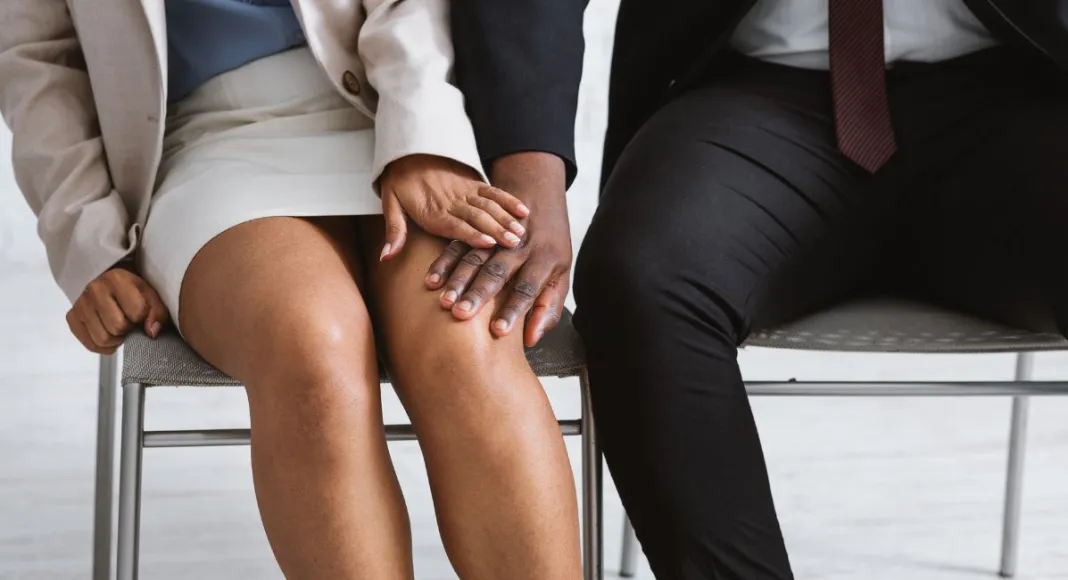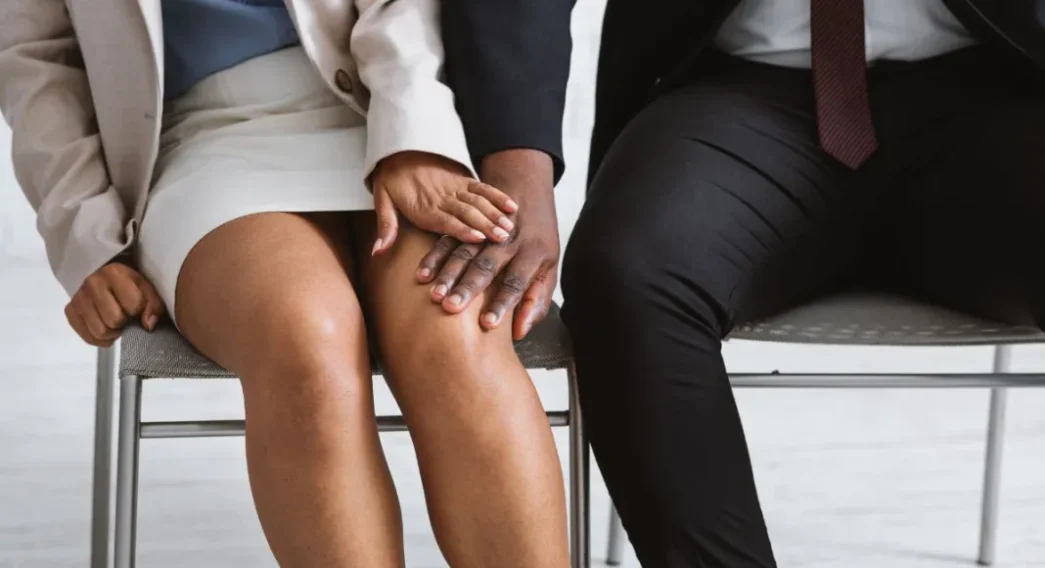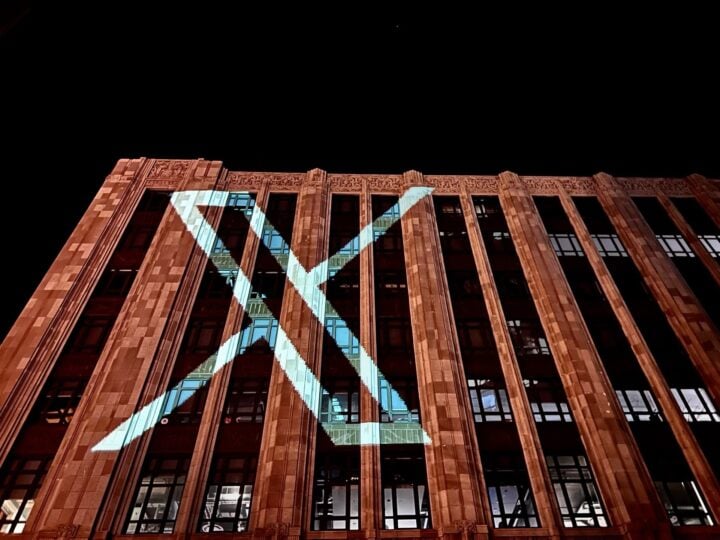BY MICHAEL ‘LEKAN ODUNLAMI
Sexual harassment is prevalent in Nigeria, but more often than not, victims stay silent for several reasons, particularly stigma and loss of dignity. Understanding workplace sexual harassment in personal injury claims in Nigeria matters because it shows how the Nigerian laws protect employees who face sexual abuse at their workplace.
Unfortunately, sexual harassment is widespread in offices, factories, markets, and even corporate settings like banks and other institutions, including public offices. It is more than offensive behaviour to sexually harass someone; it is also criminally unlawful and may lead to imprisonment. It is worth of note to emphasise that, although the victims are usually women, men are also not immune to this unlawful and immoral act, but are rarely heard of.
This act causes harm to the health and well-being of victims, career, self-esteem, and dignity, as well as leaving the victims with psychiatric injuries. Nigerian law gives victims both criminal and civil options, but civil remedies are often overlooked by most victims, even though they can give direct relief in the form of suing the harasser for monetary compensation from the court for their pain, suffering and other financial losses incidental to the harassment.
Advertisement
The effect of sexual harassment can cover physical injury if force was used by the harasser, but it also extends to emotional and psychological harm including but not limited to stress, anxiety, loss of confidence, and even depression in some cases. All these conditions are classified forms of personal injury that are recognised under the Nigerian civil law. In any of the circumstances, a victim can approach the court through a lawyer to seek compensation for financial loss, usually called damages.
Let us imagine a scenario where sexual harassment forces a lady to quit her job, which automatically means that she has lost her income or means of livelihood. Aside from that, losing her job may affect her profession as well as future career prospects or opportunities, which may have a devastating effect on her quality of life and general well-being. In this case, the lady can file a personal injury claim against her harasser in court to seek financial compensation for her losses, pain and suffering.
Although it is a fact that approaching the court and getting a money award cannot undo the wrong or erase the unpleasant or traumatic experience, however, one of the strengths of civil remedies is that they are aimed at making the victim whole, by giving them some relief as far as money can go. What this means is that the court will look at how the sexual harassment has affected the quality of life of the victim and then orders the harasser to pay compensation to enable the victim to balance the harms caused by their act.
Advertisement
As mentioned earlier, money does not erase the traumatic experience, but it acknowledges the damage done to the victim and provides some measure of justice, at least to ease the pain with monetary compensation. Please note that in sexual harassment cases in Nigeria, the courts have the power to award money for pain and suffering, and for financial losses, like loss of income if the harassment forced you to quit your job, either voluntarily or otherwise. Furthermore, the court also has an option to award exemplary or punitive damages against the harasser, where the conduct was especially harsh on the victim. This shows that the law recognises harassment not just as a workplace offence but as a wrong with real personal consequences.
In addition to getting a monetary award, the intention of the court is to hold employers accountable for what happens under their watch. Both the common law and the Nigerian law impose certain responsibilities on employers to provide a safe workplace for their employees, and that includes preventing sexual harassment. If a complaint of sexual harassment at a workplace is lodged with the management and ignored or investigations are brushed aside, you can bring a claim in court against the employer as well as the harasser.
If an action is taken against the employer and found guilty, the company may then have to pay compensation to the complainant, because it failed in its duty to protect the staff. This is important in Nigeria, where silence and stigma often prevent women from speaking out or reporting such incidents to the police for prosecution. Knowing that an employer can face financial penalties gives victims a stronger position and encourages organisations to take complaints seriously.
Please note that workplace sexual harassment can happen in different ways and may include unwanted touching, such as a colleague repeatedly brushing against you or holding your hand without consent, making sexual advances or inappropriate comments, sending sexual messages or images or other inappropriate conduct. This is in violation of your right to dignity and can form the basis of a civil claim if you decide to take legal action. Another example is when a manager asks for sexual favours in exchange for a job promotion. Following your refusal to cooperate with the manager, and you lose the opportunity as a result, the harm caused in this circumstance can be both emotional and financial and is actionable in a court of law.
Advertisement
In conclusion, understanding workplace sexual harassment in personal injury claims in Nigeria requires you to see the bigger picture, beyond a mere indecent or immoral act. If the matter is reported to the police, criminal law may punish offenders with prison terms, but civil remedies focus on the victim by ensuring that they get compensation for the injuries suffered. The court gives victims the opportunity to recover damages for the real harm suffered and encourages employers to take their duty of care owed to their employees very seriously.
While acknowledging that the judiciary has its challenges with respect to delay, high cost of litigation, cost of hiring a lawyer, and a lengthy court process are hinderances to seeking justice, nevertheless, it is still advisable for victims of sexual harassment to speak up and get justice either by reporting the incident to the police for prosecution or sue the harasser for compensation and ultimately, to send out signals that sexual harassment has serious civil and criminal consequences.
This article is only meant for general understanding only and not legal advice. If you believe you’ve suffered any harm or injury as a result of sexual harassment, and you are concerned about the high cost of hiring a lawyer, you can reach out to an experienced personal injury lawyer who can handle your case on a “NO WIN, NO FEE” arrangement, which simply means you only pay if you win and get compensation.
Michael ‘Lekan Odunlami, Esq. is a Lagos-based personal injury lawyer at Claybrook Attorneys. He can be contacted via [email protected]
Advertisement
Views expressed by contributors are strictly personal and not of TheCable.











